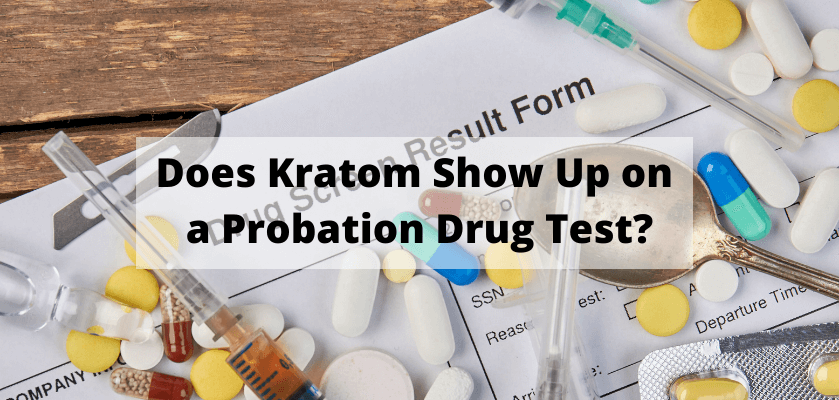Many people who are on probation are wondering if kratom can show up on their random drug testing. While it is unlikely, the answer is kratom can be detected and tested for by request. This means that a kratom screen can be added if you live in an area where kratom is illegal and your probation officer suspects you are using kratom.
The observation of kratom depends on the type of screening that is performed. This guide will help walk you through the basic legalities of kratom and why it’s essential to do your research before consuming products if you are receiving drug screening.
Note: This guide is not intended to provide legal advice but to provide informative content to those that are interested in kratom and drug screenings.
What is Kratom?
Kratom is made from the leaves of the Mitragyna speciosa tree. This tree is native to Southeast Asia and grows best in a hot and tropical climate. The lifecycle of the leaves is determined by the vein that runs down the middle of the leaves. As the leaves age, the vein color shifts from white to green and finally red.
This color change is an outward indicator of the leaves’ alkaloid content and profile. The alkaloids of mitragynine and 7-hydroxymitragynine are the pieces that make kratom products so popular. A kratom strain’s potency is determined based on the alkaloid profile and vein of leaves growing. After the leaves have been harvested, they can then be crushed into fine powders for use or placed into capsules.
Legalities of Kratom
Kratom is not illegal on the federal level in the United States. This means that the individual states can create their own laws and governance around the leaves. The DEA attempted at one point to make kratom a Schedule 1 Controlled Substance, but because this would limit use not only for recreational purposes but also for research and education, the ban was not successful and no further attempts have been made to govern the kratom industry.
Each state can make its own laws in regards to kratom. While many states either protect the leaves’ status or have no formal outlaw, there are several in which the plant is considered a Schedule 1 Controlled Substance (making it illegal to possess or purchase). These states are:
- Indiana
- Wisconsin
- Alabama
- Vermont
- New Hampshire
- Rhode Island
- Tennessee
In addition to these states, some cities/counties have made kratom illegal within their borders. It is critical to know if kratom is allowed where you live and where you are going to ensure you do not break any laws.
Drug Panels and Screening
The most common reason for a drug screening or test is through starting a new job. The drug screens and panels can also be performed for probation, physician request, subpoena, or a variety of other reasons.
It is important to note that depending on the reason is the type of screening which you will undergo. The industry-standard drug screen includes a 5-panel evaluation to test for THC, Opiates, PCP, Cocaine, and Amphetamines.
Employers, probation officers, physicians, etc. can ask to have the drug panel expanded to a 10-panel, 12-panel or test for specific substances such as kratom, certain antidepressants, Quaaludes, or buprenorphine.
There is an added risk if you live in an area or frequently travel to areas where kratom is illegal. While kratom is an herbal product, its components do not show on typical drug screens. If you are a known kratom user, it can be requested can add this to the 5-panel screening and test for kratom which makes it risky to continue to use products without discussing this first through a lawyer, judge, or your probation officer.
When You’re Not Sure…
When in doubt, do NOT use kratom products if you are undergoing drug screening. While you SHOULD be safe and not have it appear, there is a chance that the panel is expanded to include kratom. You can ask at the facility where the screening occurs what they are testing for. Just be cautious of landing in hot water for use of an herbal supplement, especially in areas where it is banned.


